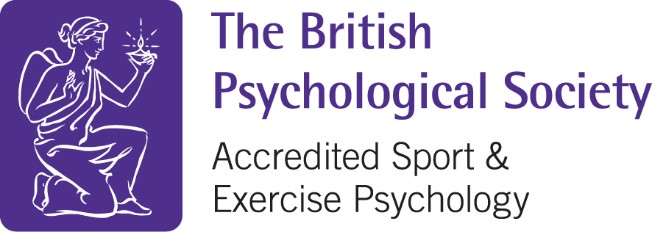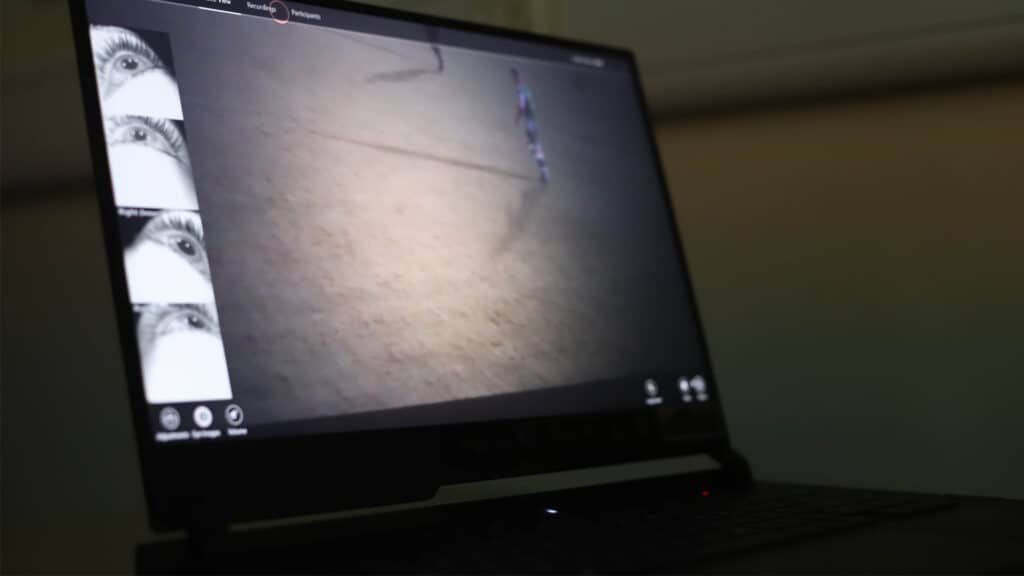Join us for a virtual Open Evening
Be the first to know about upcoming postgraduate Open Evening dates.
Overview
Gain an advanced understanding of psychology in both sport performance and exercise for health and wellbeing
Our MSc Sport and Exercise Psychology course provides you with an opportunity to develop specialist knowledge of the discipline and to increase your skills in applying such knowledge in the contexts of sport performance and exercise for health and wellbeing.
For graduates wishing to pursue a career as a Sport and Exercise Psychologist registered with the Health and Care Professions Council there are currently two routeways; British Psychological Society (BPS), and British Association of Sport and Exercise Sciences (BASES).
The course is accredited by BPS as a recognised Stage 1 Qualification in Sport and Exercise Psychology, thereby enabling graduates to enter the BPS Stage 2 training routeway.
The course is also accredited through the BASES Postgraduate Endorsement Scheme. This endorsement enables graduates to enter the BASES SEPAR training routeway.



Graduates from this MSc have also developed careers in other fields such as academia, teaching, research, coaching, health and wellbeing, and business.
By studying at Chichester, you will have the opportunity to become involved in the wider research and consultancy work of the department which includes Sport and Exercise Psychology academics and consultants.
The Course
Study the principles and application of psychology within sport and exercise
Throughout you course, you will study six taught modules, five discipline modules and one in research methods and statistics. In addition, students will complete a research dissertation.
Advanced Applied Research Skills
You will learn and apply innovative and cutting-edge methods of analysis evident in psychology literature.
Advanced Performance Psychology
This modules examines psychological characteristics that have been proposed as important determinants of success in sport with specific focus on mental toughness.
Cognitive Processes in Sport
This module attempts to identify the key cognitive factors responsible for the development and demonstration of expertise, and to explore the scope for the coach and the learner to enhance learning and performance through a better understanding of such processes.
Enhancing Physical Activity Participation and Wellbeing
This module deepens your knowledge of health behaviour change in the context of exercise and physical activity.
You will explore aspects of physical activity behaviour change that enable positive psychological and physical well-being outcomes for individuals.
You will also explore key concepts of self-concept, motivation, and behaviour change, whilst appreciating the range of psychosocial barriers and facilitators that can result in positive or maladaptive affective responses, cognitions, and behaviours.
Professional Practice in Sport & Exercise Psychology
Effective practice in sport and exercise psychology relies on the appropriate application of psychological knowledge to assess and understand human behaviour, and intervene to change behaviour. However, it also is contingent on the creation of a good working relationship between practitioner and client. Foremost in this is that the practitioner possesses key skills and qualities, and has an awareness of a range of ethical and practical issues related to the practitioner-client relationship, and the context in which practice takes place. This module, therefore, aims to develop the your understanding of the practice process and ‘effective practice’, and of a range of ethical and practice issues that might impact on this. It also aims to begin to develop some of the requisite practice skills and competencies for working as an applied sport and exercise psychologist.
Social Processes in Sport
With a focus on qualitative methods and narrative analysis, students explore current issues in sport that are impacted by social processes (for example group environment, athlete/leader interactions) and psychosocial phenomena that may threaten the performance narrative (such as injury, career transition).
The Research Dissertation
This module is the culmination of previous learning and is the major element of your independent enquiry on your programme. The module requires that you reflect on, and utilise the knowledge base, context, and application of taught modules, as well as placement experiences. It is designed to encourage you to generate and explore your own ‘problem’ assisted by supervision from a tutor.
Experience
Discover a wide range of excellent sporting facilities that support your learning
Sports laboratories
We have four specialist sports labs including a virtual reality reader, brain imaging unit and an observation suite.
Sports injury clinic
Students use our specialist injury clinics these spaces for practical sessions and run a practice.
Tudor Hale Centre for Sport
Our world-class Tudor Hale Centre for Sport acts as the focus for sports science, therapy and physiology.
Sports hall
Our specialist sports hall can be used for a wide range of indoor sports, including basketball, netball, badminton, and volleyball.
Specialist outdoor sports pitches
Alongside our grass football and rugby pitches, we also have our International Hockey Federation compliant floodlit astro turf.
Close community
Our commitment to a friendly and close-knit student community contributes to a high degree of success for our graduates.
Expert staff
Learn from experienced sport and exercise science specialists here to support you throughout your degree.
Fitness suite
We offer a variety of cardio, resistance and weight equipment, with a dedicated strength and conditioning room.
FA Women's High-Performance Football Centre
As one of only nine centres in the UK, we provide additional opportunities for women to develop as players and coaches.
Sports Dome
The Sports Dome is a large indoor facility which can be used for sports such as cricket, football, hockey, and many more.
Learning Resource Centre
The Learning Resource Centre (LRC) contains the library, a café, IT/teaching rooms, and the Support and Information Zone (SIZ).
Library
Our campus library holds more than 200,000 books and over 500,000 eBooks.
Subject specific librarians
If you have difficulty finding material for an essay, seminar or project, subject librarians will be happy to provide assistance.
Teaching and Assessment
Innovative teaching methods that focus on practice
Teaching
Teaching is delivered in small groups and is interactive.
Students are encouraged to debate topics and lead their fellow students through presentations and discussions.
In several modules there is also a practical element to gain experience developing the skills needed for applied practice.
The full-time course runs from the start of the academic year in September through to the following August.
Students undertake three taught modules in the autumn semester (September to December) and three in the spring (January to May) semester.
The dissertation is conducted and completed over the summer semester (June to August).
Part-time routes are available and those wishing to complete their studies part-time should contact the programme co-ordinator Dr Jenny Smith to discuss the options.
Assessment
You will be assessed by a variety of methods, including essays, portfolios, lab reports, role play, and oral presentations.
Our course includes a mix of assessments, so that you may develop a wide range of transferable skills. Modules are assessed at every stage of the course, offering cumulative assessment of your progress.
You can monitor your own progress, allowing you the opportunity to discuss and plan your development with your lecturers throughout the course. Where appropriate special arrangements can be made for students with an identified need.
- To gain a Postgraduate Certificate in Sport and Exercise Psychology, you need to complete three modules. Each module is assessed by a 4,000-word assignment, or equivalent.
- To gain a Postgraduate Diploma in Sport and Exercise Psychology, you need to complete six modules. Each module is assessed by a 4,000-word assignment, or equivalent.
- To gain an MSc in Sport and Exercise Psychology, you need to complete six modules, and a Research Dissertation.
Careers
Acquire the skills and knowledge required to gain employment within the sport, health and wellbeing industries
We understand the importance of ensuring that you have the knowledge, skills, and experience to compete successfully in today’s challenging jobs market.
Typical careers include:
- Sport and Exercise Psychologist
- PhD research and academia
- PE teaching
- Coaching
- Health and Wellbeing eConsultant
- Local Council Wellbeing Team member
- Charity sector roles
Student View
"Something that I simply cannot recommend enough"
We welcome students from a range of backgrounds, from those directly continuing from their undergraduate studies to those who are returning to academia after setting out on their own careers.
Hear what our students have to say about this course and how it has helped them find their future career or develop the one they currently have.
Thomas
Kevin
Course Costs
Course Fees 2024/25
UK fee
International fee
For further details about fees, please see our Tuition Fees page.
For further details about international scholarships, please see our Scholarships page.
To find out about any additional costs on this course, please see our Additional Costs page.
Entry Requirements
- An honours degree at 2:1 or higher in a related discipline.
- You will also be required to attend an interview (this can be online and face-to-face).
If English is not your first language then English language proficiency required is IELTS 6.5 (with no element less than 5.5) – or equivalent qualification
Contact
If you have any questions about this course, please contact Acting Programme Coordinator Dr Jenny Smith, either via jenny.smith@chi.ac.uk or 01243 793487.
